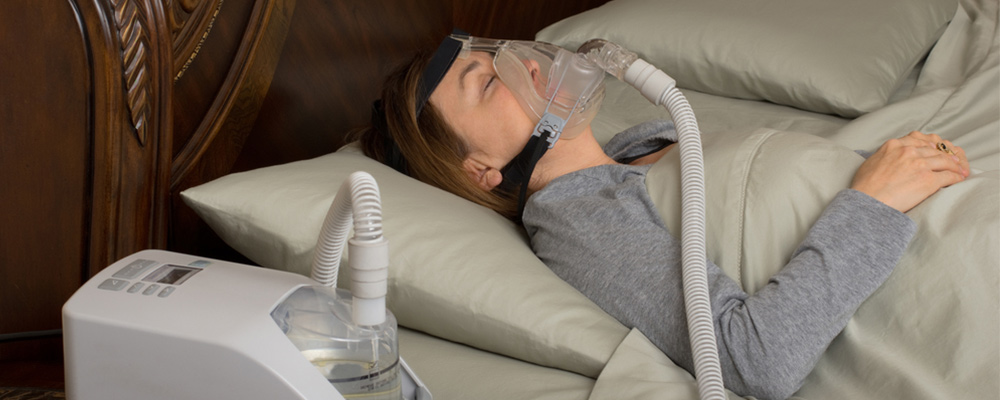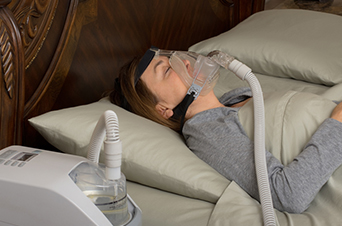
Sleep apnea is a serious medical sleep condition that may negatively impact overall health and quality of life. It is a sleep disorder accompanied by repeated interruptions in breathing during sleep. Sleep apnea contributes to the onset of other health issues, exacerbating additional medical conditions. For veterans who already face unique health challenges, the adverse effects of sleep apnea may be more profound. Therefore, the sleep apnea VA rating is considered while evaluating veterans’ overall disability ratings.
Department of Veterans Affairs (VA) assigns ratings to sleep apnea based on its severity and the extent to which it impairs a veteran’s ability to function. This rating is crucial for determining the benefits and support the veterans are liable for. This system underscores the importance of comprehensive health evaluations and the recognition of interconnected health challenges in veterans. This blog is all about VA rating for sleep apnea, an understanding of associated secondary conditions, and how they impact a veteran’s performance or services. Keep digging in to gain valuable insights into the topic!
Sleep Apnea—An Overview
Sleep apnea is a disorder that disrupts sleep due to breathing interruptions causing arousal and poor quality of sleep throughout the night. It manifests in three primary forms;
- Obstructive Sleep Apnea (OSA): This is the most prevalent type of sleep apnea. It occurs when the muscles in the throat relax intermittently, leading to a blocked airway during sleep. This relaxation prevents adequate air from entering the lungs, resulting in periods where breathing stops momentarily.
- Central Sleep Apnea (CSA): Unlike OSA, physical blockage does not lead to interrupted sleep patterns. Instead, it happens when the brain fails to send the correct signals to the muscles that control breathing. This causes disruptions in breathing during sleep.
- Complex Sleep Apnea Syndrome: Also known as treatment-emergent central sleep apnea, this condition represents a combination of both obstructive and central sleep apneas. It occurs when an individual exhibits characteristics of both conditions, making it particularly challenging to treat.
Each type of sleep apnea requires a different set of treatment strategies, depending on its impact on overall sleep health.
Also Read: The Impact of Untreated Sleep Apnea on Life Expectancy: What You Need to Know
What is the VA rating for Sleep Apnea?
The VA assigns ratings for sleep apnea based on its severity and the level of treatment required. The ratings are based on the impact it has on a veteran’s ability to function in daily activities.
What VA Disability Rating is Sleep Apnea? The ratings can be as follows:
- 0% Sleep Apnea VA Rating: This is assigned when a veteran has a formal diagnosis of sleep apnea. However, they don’t exhibit any symptoms. Therefore, eliminating the need to use CPAP machine or any other treatment.
- 30% Sleep Apnea VA Rating: This VA rating for sleep apnea can be given when a veteran requires treatment through CPAP machine. The use of CPAP machine demonstrates a persistent sleep condition that affects the veteran’s health.
- 50% Sleep Apnea VA Rating: If the sleep apnea condition affects the veteran’s ability to function and imposes daytime sleepiness, this disability rating is assigned. However, this rating does not require regular or consistent use of respiratory assistance during the day.
- 100% Sleep Apnea VA Rating: This is assigned when sleep apnea causes chronic respiratory failure with carbon dioxide retention, or when it requires the veteran to have a tracheostomy.
Each case is evaluated on individual symptoms and management requirements. Veterans suffering from sleep apnea may need a healthcare expert to examine and evaluate their condition and its severity. They then can file a claim for a VA disability rating to benefit from the compensation allowed.
Secondary Health Conditions to Sleep Apnea for VA Disability Rating
Service-connected sleep apnea may lead to various secondary health issues. These may include cardiovascular diseases like hypertension or heart failure commonly linked to sleep constraints. Moreover, conditions like chronic fatigue, gastroesophageal reflux disease (GERD), and mental health disorders like depression or anxiety.
Grasping a solid understanding of these connections is crucial for veterans. They must explore the full impact of sleep apnea on their overall health. The associated connections may help them file a proper claim for a VA rating for sleep apnea.
What is the VA Rating for Sleep Apnea Secondary to PTSD?
Backed by numerous studies, there is a strong connection between post-traumatic stress disorder and sleep apnea. While PTSD disrupts normal sleep patterns, other conditions like obesity or weight gain, exacerbated by PTSD, can further contribute to the development of OSA.
It is safe to say the relationship between PTSD and OSA is bidirectional. Severe PTSD can worsen OSA symptoms and vice versa. Moreover, PTSD adversely impacts the sleep cycle, increasing the likelihood of sleep disordered breathing. As a result, the body becomes more conducive to developing OSA.
Furthermore, if both sleep apnea and PTSD are recognized as service-connected conditions secondary, the sleep apnea VA rating can vary. However, PTSD ratings can range from 0%, 10%, 30%, 50%, 70%, to 100%, with 70% being a commonly assigned rating due to the severity of symptoms.
What Steps Are Necessary to File Sleep Apnea VA Rating Claim?
Filing a VA claim for sleep apnea benefits requires the following:
- Meeting certain criteria
- A disability benefits attorney with expertise in VA claims.
To establish a viable claim, three key conditions must be met:
- Diagnosis: A qualified medical professional must diagnose sleep apnea through a sleep study.
- Service Connection: The sleep apnea condition must have either started or worsened during active service.
- Connection to Service: There must be a clear connection between the current diagnosis and an event or condition that occurred during service.
Moreover, veterans may still avail themselves of benefits even if sleep apnea is not directly linked with active service. This requires a secondary claim that needs to be evidence-backed. Medical diagnosis, proof of a service-connected primary disability, and medical documentation establishing a connection between the two are the requirement criteria that must be fulfilled. An attorney specializing in VA claims will compile and present all necessary evidence to support these elements.
To Sum Up
Lastly, understanding the impact of sleep apnea on daily life and everyday functioning for veterans seeking disability ratings for benefits. Veterans can better navigate the claims process by exploring how the VA evaluates specific conditions and their interactions with other complex health issues.
However, the condition intensity determines the sleep apnea VA rating, which is standardized by the Department of Veteran Affairs. Recognizing and treating sleep apnea improves the quality of life and overall well-being and positively influences the sleep apnea VA rating, ultimately leading to better veteran outcomes.

